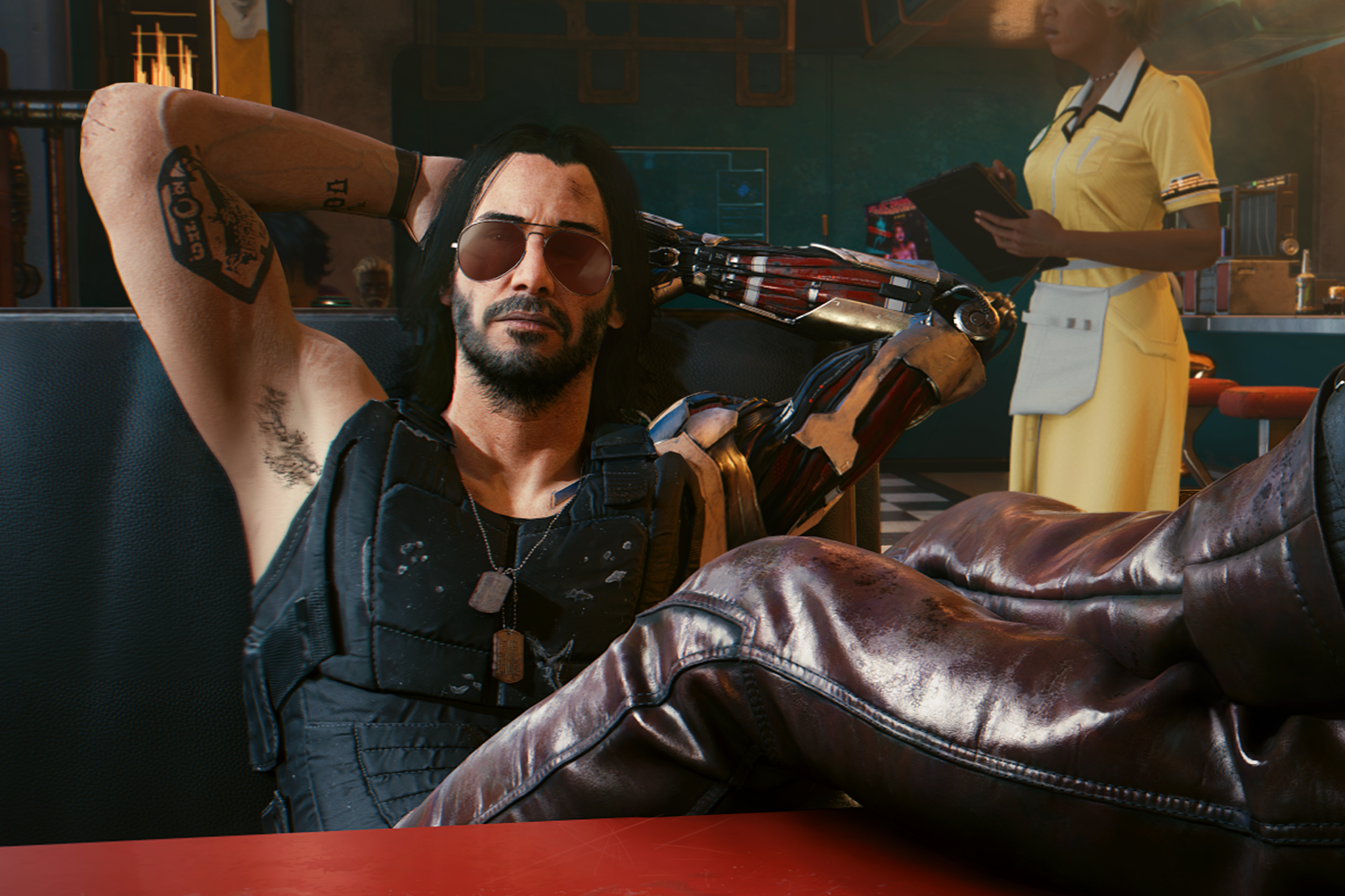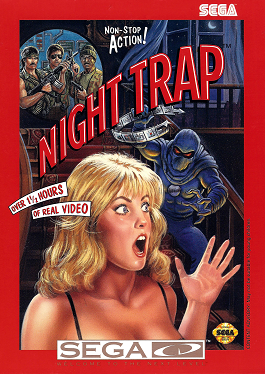If it’s good enough for Keanu…: Why A-listers are no longer embarrassed to star in video games
Video game acting has come a long way since Brian Blessed was starring in ‘Privateer 2: The Darkening’, writes Ed Power. Today, stars such as Idris Elba and Jodie Comer are trading on-screen performances for pixels and voiceovers. But why?

Idris Elba has seen the future, and it’s full of pixels. The star of Luther and The Wire is currently promoting his latest project, in which he plays mysterious super-spy Solomon Reed. But you won’t be able to catch his performance at the multiplex or on streaming – Reed is one of the lead characters in video game Cyberpunk 2077: Phantom Liberty.
“Games and actors have always worked together, but we’re seeing more notable film actors being moved into gaming,” explained Elba of his involvement in the dystopian thriller, which is set 54 years in the future (Phantom Liberty is an expansion to the original Cyberpunk, which came out in 2020 and is in turn based on a 30-year-old tabletop game). A-listers starring in video games were, he said, “a sign of the time”.
He’s right. In an era in which superhero movies have replaced the traditional actor-led box office hit, stars are dipping a digital toe into games. In recent years, Kit Harington, Rami Malek and even US talk show host Conan O’Brien have graced console and PC titles. One of 2023’s most acclaimed releases, fantasy adventure Baldur’s Gate 3, features Oscar winner JK Simmons as an undead general named Ketheric Thorm. Having shifted more than five million units already, Baldur’s Gate is likely to be one of the biggest successes of Simmons’s career.
“Casting celebrity actors is often driven by a combination of an actor wish-list and marketing, in my experience,” explains Kirsty Gillmore, a freelance voice and performance director and casting director for games, who worked on Baldur’s Gate 3. “Developers might write or create a character with a particular actor in mind and then the marketing team like the idea of getting that actor, or one with a similar profile, for that character.”
Celebrities acting in games “have been around for a very long time”, says André Persson, co-founder of Project 369 Group, a consultancy firm that works with game developers. “The results have really varied throughout the years, but now that games can be even more complex than the best TV series or movies, [acting] can be on a whole other level.”
In 1992, Diff’rent Strokes star Dana Plato appeared in Night Trap. In the controversial Sega Mega Drive title, the player watches over teenage girls having a sleepover in a vampire-infested house. Given the “peeping Tom” premise, it probably wouldn’t be made today. But it was ahead of the curve in casting Plato. Where she went, others would follow. One of Mark Hamill’s first major post-Star Wars projects was 1994’s Wing Commander III. He excelled as a grizzled intergalactic fighter pilot living off the fumes of old glories. And 1996’s Privateer 2: The Darkening featured the quadruple-whammy of Clive Owen, John Hurt, Christopher Walken and Brian Blessed. Back then, these appearances didn’t generate much attention, or respect. This was the equivalent of Arnold Schwarzenegger quietly advertising soft drinks in Japan. It was happening. But nobody talked about it. Today, by contrast, stars such as Elba are happy to be associated with big games.
That’s partly because games have become more sophisticated and are now regarded as a valid art form. Many younger actors have, moreover, grown up with the hobby. Elba owned an Amstrad as a kid. These days, he packs his trusty Nintendo Switch whenever he leaves the house. But it’s also hard to underestimate the impact on gaming of actor Andy Serkis. He revolutionised “motion capture” digital performance as Gollum in the Lord of the Rings trilogy. Lord of the Rings wasn’t a video game. Still, bringing Gollum to the screen was identical to the process used to make hit video games such as the existential zombie romp The Last of Us. In both cases, actors wear body suits covered in dots so that their performance can be tracked by digital camera and fed into a computer.
Actors who come from a theatre or film background already have a lot of the skills needed for video game acting. It’s just as demanding
Serkis has dabbled in video games. Cinema and gaming have moved closer together, he says. “In the early 2000s, video games were really looked down on as not artistic enterprises… it was all about the violence,” he said while promoting the 2022 sci-fi strategy game Warhammer 40K: Chaos Gate – Daemonhunters. Twenty years later, he said, the situation had been “flipped on its head”. Video game technology is now utilised extensively in movie pre-production. “Those two worlds have really melded.”
At around the same time Serkis was shaking up motion capture, video games were reaching a more mainstream audience thanks to action-packed hits such as Grand Theft Auto. The Rockstar franchise – in which players steal cars and wreak havoc – left its mark on gaming, particularly the 2002 instalment, Vice City. Driving its popularity was none other than the original baby-faced gangster, Goodfellas’ Ray Liotta, who voiced anti-hero Tommy Vercetti – a man who never leaves the house without wearing one of his signature Hawaiian shirts.
Vice City sold 1.4 million copies in five days – to Liotta’s shock. “I had no idea,” he later told Conan O’Brien. “I’m not a game player... I was never into that stuff at all.” But if gaming was new to Liotta, he appeared to have enjoyed the experience. “You’re just sitting there cursing at people,” he joked.
Other stars rapidly followed in his footsteps. Kevin Spacey appeared in Call of Duty (as did Kit Harington in sci-fi spin-off, Infinite Warfare). Burt Reynolds was in sub-GTA gangster caper Saints Row, Phil Collins performed “In the Air Tonight” in GTA: Vice City Stories, Martin Sheen appeared in Mass Effect 2, Friends actor Matthew Perry graced Fallout: New Vegas, Frozen’s Kristen Bell was in Assassin’s Creed as mentor Lucy, Willem Dafoe appeared opposite Elliot Page in Beyond: Two Souls, and Kiefer Sutherland was in Metal Gear Solid V.
For actors, appearing in video games isn’t very different to doing a Marvel or Star Wars movie. Both generally involve wearing motion capture suits and “interacting” with characters and situations that will be added later. In either case, the nuts and bolts of performing for the camera are the same.
“Acting for video games is acting, pure and simple,” says Gillmore. “Actors who come from a theatre or film/TV background already have a lot of the skills needed for video game acting. They’re still required to create a believable, truthful character performance, lift words off the page, and ... give a connected physical and vocal performance. So in that way, it’s just as demanding.”

Technology aside, movies have become more like video games in tone and pacing. So said Keanu Reeves when promoting the original Cyberpunk 2077, in which he plays rockstar Johnny Silverhand. He talked about “the influence gaming has had on Hollywood… certainly with the Marvel Universe”.
Financially, gaming is also a lot more lucrative than movies. The industry was worth $217bn in 2022, compared to the movie business’ valuation of $77bn. That explains how Cyberpunk developer CD Projekt RED could pay Reeves a reported $30m (£24m). That sum is substantially higher than the $22m (£18m) he is said to have earned for John Wick 4.
Despite all of this, gamers are the one group largely indifferent to star power in console and PC titles. In the gaming community, a hit is primarily driven by buzz around the gameplay. Baldur’s Gate 3 is one of 2023’s biggest word-of-mouth smashes, because it’s great fun. Gamers generally don’t care that it features JK Simmons. Instead, casting stars helps raise a title’s profile outside the gamer community, particularly with the mainstream media. Consider all the free publicity Cyberpunk 2077 has received after Elba shared his thoughts about movie stars and video games.
Besides, gaming is perfectly capable of creating its own celebrities. Often, voice or motion capture actors will become famous off the back of appearing in a beloved title. That’s what happened with The Last of Us, where Troy Baker and Ashley Johnson developed a huge fanbase for their turns as post apocalyptic survivors Troy and Ellie. They were replaced by Pedro Pascal and Bella Ramsey in the TV adaptation. Yet for many fans, Baker and Johnson remain the definitive Joel and Ellie. “For most gamers, it’s more important that the right voice fits the role than [the actor] needing to be a celebrity from Hollywood,” says Persson.
The emergence of video games as an alternative to film, TV and theatre has not gone unnoticed. London’s National Youth Theatre has introduced a summer school in acting for video games. “Our whole approach to developing talent is industry-led,” says CEO and artistic director Paul Roseby. “We encourage a fluid multi-skill approach to acting that reflects the contemporary shift in the marketplace.”

Video game acting can pay well even if you’re not Keanu Reeves. In the US, the Sag-Aftra union rate for voice acting in a game is $956.75 for a four-hour day (actors may be required to perform up to three characters in that time). But there is little evidence that the Hollywood actor strike has led to a stampede into video games. In fact, the video game wing of Sag-Aftra has just voted in favour of industrial action in a dispute around pay and the use of artificial intelligence and the digital likenesses of performers (negotiations with video game companies are continuing). Nonetheless, gaming is undoubtedly regarded as a respectable way to make a living.
“It’s definitely a viable strand to pursue, as part of an overall acting career,” says Gillmore. “I wouldn’t recommend that any actor solely concentrate on working in video games, in the same way that I wouldn’t recommend actors only pursue theatre roles or focus on film/TV work. Acting is such a challenging, uncertain career path that it’s important for actors to keep their options open.”
Hollywood A-listers have taken that advice to heart. Next year, Killing Eve’s Jodie Comer and Stranger Things’s David Harbour will lend their voices to a remake of Lovecraftian survival game classic Alone in the Dark. But while gaming studios are prepared to pay millions for big-name talent, actors still have nowhere near the sort of clout among gamers that they enjoy in Hollywood. Take one of the most acclaimed games of 2023, The Legend of Zelda: Tears of the Kingdom. Its hero, the brave elf Link, is one of gaming’s most celebrated characters – but he doesn’t utter a word. So, while Elba is correct about gaming and Hollywood moving closer together, acting is a secondary consideration for gamers. As has been the case since the dawn of the hobby, what ultimately matters is the gameplay.






Join our commenting forum
Join thought-provoking conversations, follow other Independent readers and see their replies
Comments